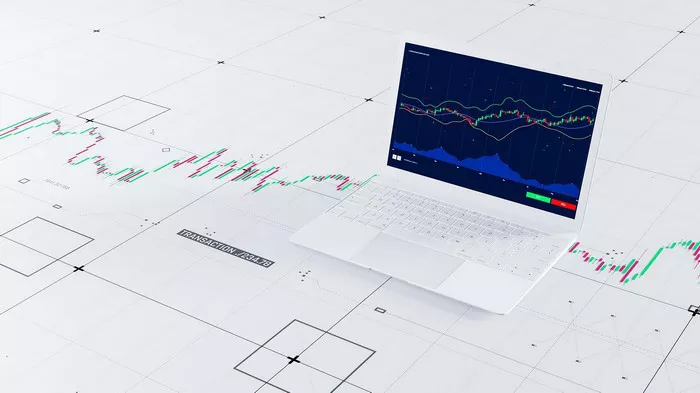Forex trading, also known as currency trading, has gained immense popularity over the past few decades, offering an opportunity for traders to profit from fluctuations in currency exchange rates. The idea of making money by trading foreign currencies is appealing to many, but a common question that arises is: How much do Forex traders actually make?
This question does not have a simple answer, as earnings in the Forex market vary widely depending on several factors. Some traders make substantial profits, while others may incur significant losses. To understand the potential earnings, it is essential to explore the various aspects that influence a Forex trader’s income, such as experience, capital, risk management, strategy, and the trading environment.
In this article, we will delve into these factors and offer a comprehensive overview of how much Forex traders can realistically expect to make. Whether you are new to Forex trading or an experienced trader looking to assess your potential earnings, this article will provide valuable insights.
What Is Forex Trading?
Forex trading involves the buying and selling of currencies on the foreign exchange market. It is the largest financial market in the world, with a daily turnover exceeding $6 trillion. In Forex trading, currencies are traded in pairs, such as EUR/USD (Euro/US Dollar), GBP/JPY (British Pound/Japanese Yen), and USD/JPY (US Dollar/Japanese Yen).
Traders speculate on the price movement of currency pairs, hoping to profit from changes in exchange rates. Forex trading is available 24 hours a day, five days a week, making it highly accessible to traders around the world. The Forex market is also highly liquid, which means that traders can enter and exit trades easily, with minimal price slippage.
Factors That Affect Forex Traders’ Earnings
There are several factors that influence how much a Forex trader can make, including:
1. Experience and Skill Level
A trader’s level of experience plays a crucial role in determining their profitability. Novice traders, who are just starting, may struggle to make consistent profits due to a lack of knowledge and understanding of the market. However, experienced traders with a deep understanding of the market and effective trading strategies are more likely to generate consistent returns.
Forex trading requires not only technical knowledge of chart patterns, indicators, and market analysis but also psychological skills to manage emotions, discipline, and risk. Over time, as traders gain more experience and refine their skills, they may become more adept at identifying profitable opportunities and managing risks, which can lead to higher earnings.
2. Capital Invested
The amount of capital a trader invests in the market directly affects their potential earnings. Forex traders can control large positions with a relatively small amount of capital, thanks to leverage. Leverage is a tool that allows traders to open larger positions than their initial deposit would normally allow. For example, with a leverage ratio of 100:1, a trader can control a $100,000 position with just $1,000 of their own capital.
While leverage can amplify profits, it also magnifies losses. Therefore, traders with larger capital investments may have the potential to earn more, but they also face a higher risk of significant losses. For this reason, it is essential for traders to manage their risk appropriately, regardless of the capital they have available.
3. Risk Management
Risk management is a critical factor in determining a Forex trader’s success and profitability. Effective risk management helps traders minimize losses and protect their capital. Traders typically use tools like stop-loss orders, position sizing, and risk-to-reward ratios to limit their exposure to risk.
Traders who take on too much risk may experience large drawdowns or account wipeouts, which can significantly reduce their earnings. On the other hand, traders who practice disciplined risk management are more likely to achieve consistent profitability over time.
For example, if a trader risks 2% of their capital per trade and wins 50% of their trades with an average risk-to-reward ratio of 1:2, they could generate profits consistently, even with a relatively low win rate. Successful traders focus on protecting their capital and limiting losses rather than chasing large profits on every trade.
4. Trading Strategy
A trader’s strategy plays a central role in their ability to generate profits. There are various trading strategies that traders can use, ranging from scalping (short-term trades) to swing trading (holding positions for several days or weeks) and position trading (long-term trades).
The effectiveness of a trading strategy depends on the trader’s style, market conditions, and risk tolerance. Some traders may adopt a more aggressive approach, looking for frequent, small profits, while others may take a more conservative approach, aiming for larger, less frequent profits.
Traders who use a consistent, well-researched strategy based on technical and fundamental analysis are more likely to be successful than those who trade without a clear plan or strategy.
5. Market Conditions and Volatility
The overall market conditions, including volatility, also play a significant role in determining how much Forex traders can make. Volatility refers to the extent of price movements in the market. In highly volatile markets, currency pairs experience larger price swings, which can create more profit opportunities for traders. However, volatility also increases the risk, as prices can move quickly and unpredictably.
Traders may use volatility to their advantage by implementing strategies such as trend-following or breakout trading. However, excessive volatility can also lead to large losses if trades are not managed properly.
6. Time and Effort Dedicated to Trading
The amount of time a trader dedicates to Forex trading can also impact their earnings. Full-time traders who spend more hours analyzing the market, developing strategies, and executing trades may be able to take advantage of more opportunities and increase their chances of profitability. However, part-time traders may find it more difficult to achieve the same level of success, as they have less time to monitor the market.
The Forex market is open 24 hours a day, which gives traders the flexibility to trade at any time. However, to be successful, traders must be committed to learning and improving their skills.
How Much Can Forex Traders Earn?
The potential earnings for Forex traders can vary widely depending on the factors mentioned above. Some traders make substantial profits, while others may experience significant losses. Below are some examples of how much Forex traders can make based on different levels of experience, capital, and trading style.
1. Novice Traders
Novice traders, especially those who are just starting, may struggle to make consistent profits in the Forex market. In fact, studies show that a significant percentage of new traders lose money. According to a report from the U.S. Commodity Futures Trading Commission (CFTC), approximately 70-80% of retail Forex traders lose money.
As a beginner, it is important to start with a demo account or a small amount of capital and focus on learning the fundamentals of trading. Even experienced traders need to spend time developing and refining their strategies before they can expect to see consistent profits.
2. Experienced Traders
Experienced Forex traders who have developed effective strategies, honed their skills, and practice proper risk management are more likely to generate profits. An experienced trader may aim for a consistent return of 10-20% annually, depending on market conditions and risk tolerance. For example, if an experienced trader starts with $10,000 in capital and generates a 10% return annually, they would earn $1,000 per year.
However, it is important to note that this is just an average estimate, and some experienced traders may earn more, while others may earn less. The profitability of a trader depends on how well they adapt to market conditions and manage risk.
3. Full-Time Traders
Full-time Forex traders who dedicate a significant amount of time and effort to analyzing the market, executing trades, and optimizing their strategies may have the potential to earn more than part-time traders. Full-time traders can aim for higher returns, but they also take on more risk due to their larger positions and exposure to the market.
A successful full-time trader may be able to earn anywhere from 20-50% per year, depending on their strategies, capital, and risk management. However, it is essential to understand that consistent profitability requires discipline, continuous learning, and the ability to adapt to changing market conditions.
4. Leverage and Earnings Potential
Leverage can significantly increase a Forex trader’s potential earnings. For example, with 100:1 leverage, a trader can control $100,000 in the market with just $1,000 of their own capital. This means that profits (or losses) can be magnified.
For instance, if a trader gains 2% on a $100,000 position, their profit would be $2,000. However, if the trade results in a 2% loss, the trader would lose $2,000. Leverage can amplify both profits and losses, making it a double-edged sword. Traders must use leverage cautiously and ensure they are managing their risk effectively.
Conclusion
The amount of money Forex traders can make varies widely based on experience, skill level, capital invested, risk management practices, and market conditions. While some traders may make substantial profits, others may experience significant losses. Forex trading offers the potential for high earnings, but it also involves considerable risk.
To be successful in Forex trading, it is crucial to have a solid understanding of the market, a well-defined trading strategy, and strong risk management techniques. It is also important to approach Forex trading with patience and discipline, recognizing that profits are typically earned over time rather than through quick gains.
While there is no guarantee of success in Forex trading, traders who are committed to learning, improving their skills, and managing their risks effectively can increase their chances of generating consistent profits. Ultimately, the amount a Forex trader can make depends on their approach to the market and their ability to adapt to changing conditions.
Related topics:


































